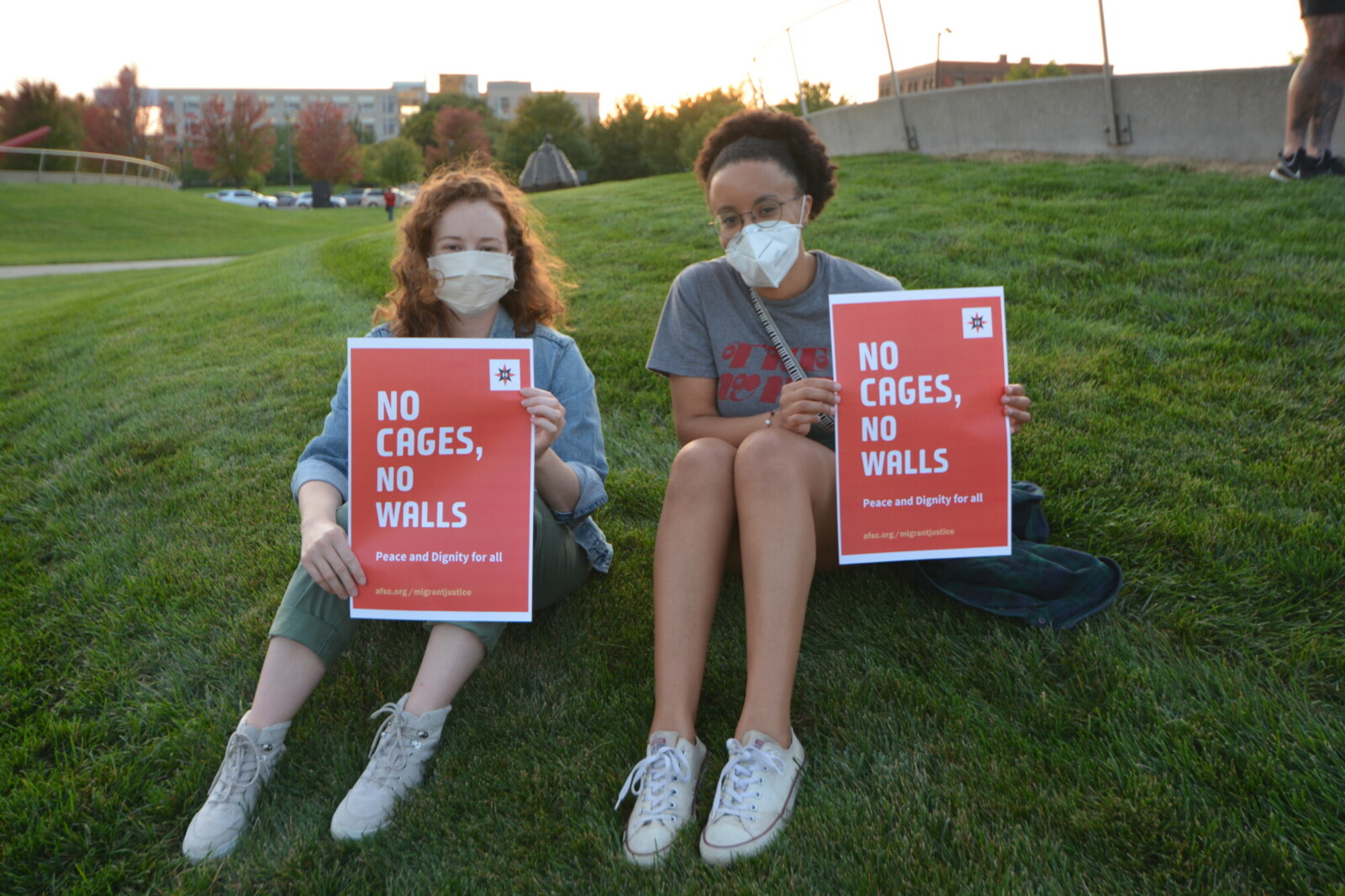
#FreeThemAll action in Des Moines Jon Krieg / AFSC
Incarceration doesn’t keep us safe. The United States has the highest incarceration rate in the world, with 2.3 million people behind bars—disproportionately people of color and poor people—while doing little to stop harm or help survivors of violence and communities heal. It would make way more sense to spend public funds on things that truly serve our communities—like education and economic opportunities—than spending money locking people up.
The good news is there is wide support for shifting taxpayer dollars away from incarceration to meet real community needs, according to a poll recently conducted by AFSC. Our recent study showed that the majority of people who participated in our survey favor humane, community-centered policies over the current system.
Here are key findings and takeaways from our recent poll:
- 64% of respondents support restorative justice policies—and that support jumps to more than 70% when we talk about these policies using jargon-free, easy-to-understand language. Compared with our current system, the vast majority of respondents in our poll agreed a person who experienced violence should be given the resources they need to heal emotionally and physically. Respondents also agreed that the person who perpetrated the violence should be held accountable and required to make amends to those they harmed—as well as offered support to address the underlying causes that led them to commit the violent act.
- 87% of respondents agree that funding should go toward community needs rather than punishment. No matter how we asked the question, we saw overwhelming support for the idea that communities should receive enough funding to pay for education, youth programs, mental health services, and job training programs in order to keep us all safer. It makes more sense to invest in preventing crime and violence rather than simply reacting after the fact.
- 57% of respondents support pathways for people serving long-term or lifetime sentences to rejoin their families or communities. This support increases to more than 60% when we describe, in plain language, what these pathways could look like – things like community-based reentry and support so that people can successfully reintegrate into their communities.
- 62% of respondents agree that immigrants who are convicted of crimes should not be punished with deportation after they have served their sentences. No one should be punished twice for the same offense, and immigrants with criminal convictions should be able to return to their communities rather than facing deportation. Regardless of how we asked the question, respondents agreed that everyone deserves a second chance.
- 70% of respondents agreed that state governments and the federal government should spend less taxpayer money on prisons, jails, and detention centers. We waste $80 billion in taxpayer money annually keeping people in cages, and yet violence continues to rise. This diverts funds from essential services and community-led programs that address the root causes of violence. We need to invest in these programs instead.
Interested in helping us build support for a better, more community-centered system that creates real justice? Read our recent post on how to start a conversation about ending detention and incarceration. And please take action to support our growing #FreeThemAll campaign to work toward a future without incarceration.
This research would not have been possible without the leadership and collaboration of many organizations: Black Alliance for Just Immigration, Community Justice Exchange, Critical Resistance, Detention Watch Network, Movement for Black Lives, National Immigrant Justice Center, and United We Dream.